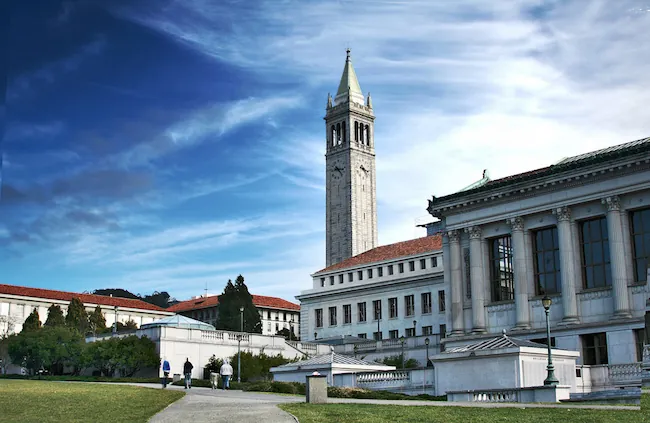The way Michael Grimes sees it, the path to a leadership role in the tech industry has changed dramatically in recent years.
“If you grew up in tech, you will have seen that a combination of deep tech expertise with true business and leadership skills make the most effective leaders,” says Grimes, who as managing director of global technology investment banking at Morgan Stanley is one of the Silicon Valley’s most influential dealmakers. “Sure, every now and then there is someone who comes along like Bill Gates or Mark Zuckerberg who is a unique individual. If you set those aside, 80% of the most effective C-suite leaders in tech fit a common pattern. They tend to have an undergraduate degree in computer science followed by an MBA later on. That way they have the management skill set combined with a deep understanding to be taken seriously by the engineers.”
Grimes is wildly enthusiastic about a new, shorter route to tech leadership: a new UC-Berkeley program for undergraduates that awards a dual-degree in engineering and business within four years. Grimes is among 12 members of the founding advisory board for the new option called the Management, Entrepreneurship, & Technology Program (M.E.T.). Starting Aug. 1, a new check box began popping up on Berkeley’s undergraduate application that allows admits guaranteed direct admission to both the Haas School of Business, which only admits undergrad candidates in their junior year, and the College of Engineering.
‘THESE UNDERGRADS WILL BE ABLE TO LITERALLY GO ANYWHERE THEY WANT’
The program will accept an initial cohort of 25 to 30 students, until going to a steady slate of 50 in a couple of years. UC-Berkeley believes the new elite offering will attract some of the world’s most talented undergraduate applicants.
“Harvard Business School and Stanford Graduate School of Business don’t have undergraduate degrees in business, so they can’t offer a rival dual-degree program,” points out Rich Lyons, dean of the Haas School of Business. “And both our business and engineering undergraduate programs are world-class. So we think these undergrads will be able to literally go anywhere they want.”
The program also lines up with the business school’s strategic vision to forge greater links with the larger university, as well as the engineering school’s goal to better diversify its student population. “Five years from now, it’s possible that a third of our undergraduates will finish a dual degree in engineering, the life sciences, or chemistry,” says Lyons, who with College of Engineering Dean S. Shankar Sastry, has already raised more than $11 million in endowments for the new program.
‘THE ACADEMIC EQUIVALENT OF THE NAVY SEALS’
“In engineering,” explains Sastry, “we increasingly want a diverse student body. That’s why more engineering departments are offering variants of their degrees in the letters and sciences. It’s part of the trend to get poets and quants together and not have the people who get engineering degrees be exclusively geeks. Engineering itself is changing at heart. It’s becoming much more about a social ethos of developing things that used to be only for the elite and democratizing them. Given that social content to ride the cost curve down, it’s critical for all engineers to have a broader view of the social, business and legal context of the world. It’s an especially important time for us to look outward.”
M.E.T. students will enroll in one program but earn two bachelor of science degrees, one in engineering and one in business administration. The integrated curriculum consists of liberal arts, engineering and business courses and can be completed in four years. Each M.E.T. cohort will be small, allowing for close mentoring relationships and a tight-knit community. Opportunities to pursue internships, career coaching, and other enrichment will provide students with ample opportunities for hands-on learning in innovation and entrepreneurship. Students also will have access to the resources of Berkeley-Haas, Berkeley Engineering and Berkeley as a whole, from student clubs and startup incubators to alumni networks around the world.
“It is the academic equivalent of the Navy Seals,” says Grimes, who championed the idea along with the other advisory board members. “This is a whole other level of an academic experience. As a hirer and an employer, I can tell you this will be one of the most elite undergraduate programs out there.” He also believes this new path fits with the new realities of faster change in the tech business. “In the 80s, when there was a 15-year spread between the IBM PC and the Internet, there were these long cycles in tech. That is out the window now. The tech you learned in an academic setting as an undergraduate will have moved on because the pace is so fast, global, and instantaneous. The issue today is speed.”












